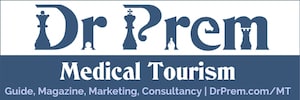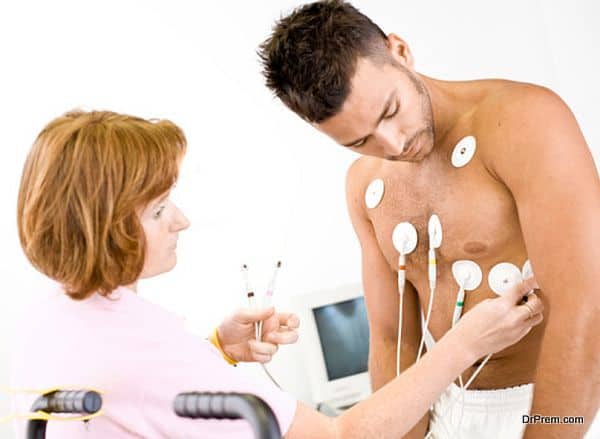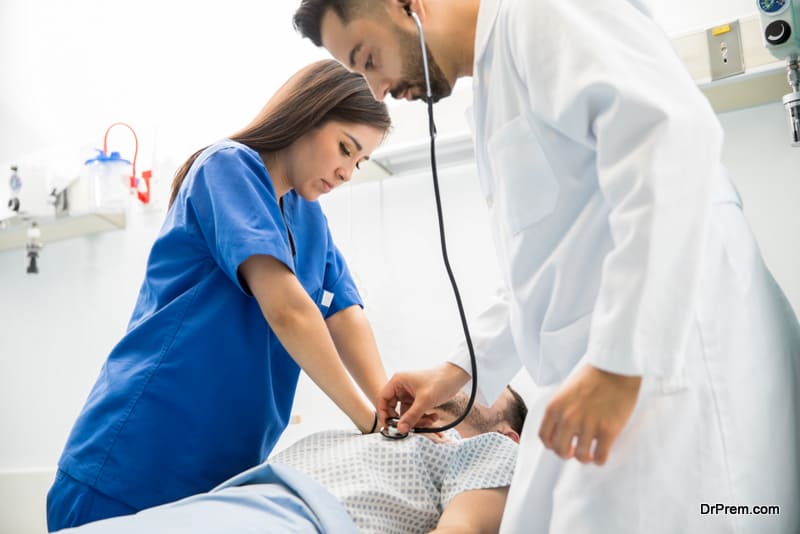Dr. Prem’s guidebook on Medical tourism is a section on ‘Who to Seek Guidance From’. A facilitator is very familiar with medical tourism and the process a patient should follow, they also have a strong network of hospitals and physicians they represent.
Guide on how to seek guidance for medical tourism trip
-
Local doctor
-
Friends and relatives
-
Medical tourism associations
-
Advantages of seeking advice from Medical Tourism Associations
-
Disadvantages of seeking advice from Medical Tourism Associations
-
Treating hospitals
-
Advantages of seeking guidance from the treating hospital
-
Disadvantages of seeking guidance from the treating hospital
-
Medical tourism facilitator
-
Advantages of seeking guidance from a facilitator
-
Disadvantages of seeking guidance from a facilitator
-
Miscellaneous
-
Tourism Boards
-
Exhibition and conferences
However, with facilitators it is important to remember that they might be biased to certain facilities that they are receiving a commission from. Additionally, medical tourists can gather information from the treating hospital as they can provide a patient with success and outcomes rates, testimonials and necessary documents. However, patients should be aware of the accuracy of the information they receive.
A prospective medical traveler can seek guidance from the following sources:
- Local doctors
- Friends and relatives
- Medical tourism associations
- Treating hospital
- Medical tourism facilitator
- Miscellaneous
-
Local doctor:
Your local doctor probably knows your medical history very well. He/she will also likely have a good idea of the health condition you are planning on having treated overseas. This makes your local doctor the ideal candidate to offer accurate information and guidance that you can use. Their strong medical knowledge can help you understand the various aspects of your condition and any expectations you may have from the proposed treatment.
They can additionally differentiate between the standard of treatments available in different destinations which may seem similar to you, as they understand quality care practices. They can also help translate and decipher the complicated medical jargon associated with the treatment you require. Furthermore, they could be well connected or have contacts with either physicians or individuals abroad that you may find useful.
-
Friends and relatives:
Friends and relatives residing abroad can prove to be a vital source of support for the medical tourist. They might have much more knowledge about the quality of treatment and service available there. This is the reason medical tourists often prefer locations where friends or relatives reside. With the presence of relatives, problems such as accommodation and financial support are easily taken care of.
Also, friends and relatives at home can provide a great support as they might be connected with individuals who have experienced medical tourism or that live abroad. They can come in handy by giving you their honest opinion and can provide great emotional support. You can ensure that the advice they give you will only be in your best interests because they care about your wellbeing.
-
Medical tourism associations:
Due to the recent rise and popularity of medical tourism, many associations based specifically in the industry of medical travel have sprung up, such as the Medical Tourism Association, The Council on the Global Integration of Healthcare and the European Medical Tourism Alliance. These associations are few of the business to business trade associations which promote as well as support the medical tourism industry to a large extent.
These associations also act as information portals for patients to seek guidance from. These tourism associations provide up-to-date information for patients about things you may need to know related to insurance companies and top hospitals (about their quality of service and care). They also conduct informational sessions and programmes to educate patients about the advantages of medical tourism and the varying quality of treatment available in different countries.
-
Disadvantages of seeking advice from Medical Tourism Associations:
The only shortcoming of these organizations is that they offer general and wide-ranging advice for all medical tourists, which may not be applicable in your specific case. You may find that you have particular requirements and needs to communicate with these associations, if necessary based specifically on your medical condition. Many associations have social network platforms or community forums which can help you obtain more details about the type of support these associations provide.
-
Treating hospitals:
Reaching out to the treating hospitals to seek guidance in medical tourism is not a bad idea. However, you need to consider the following while doing so.
-
Advantages of seeking guidance from the treating hospital:
Seeking guidance from the treating hospital could be very beneficial in the preparation phase of your medical trip. The hospital where your procedure will be conducted should have all the relevant medical information and documents you might require to accurately budget and plan your trip. They also have specialized international patient representatives that are hired specifically to assist foreign patients and communicate with them.
-
Disadvantages of seeking guidance from the treating hospital
However, a downside to utilizing the treating hospital for information regarding your medical procedure is that you will get a biased response from them. Also, you can’t guarantee that the information you are receiving from there is accurate and validated. Many healthcare institutions can create fake testimonials and reports to increase inflow of patients. So, it is better to cross check all the information they are providing by contacting previous patients.
-
Medical tourism facilitator:
A facilitator is very familiar with the entire medical tourism industry and the process that a patient has to follow. They have a strong network of hospitals and physicians around the world that they represent. They usually do not have a medical background, but due to the nature of their work, facilitators understand medical procedures fairly well. Most importantly, they help organize the entire trip and take care of the non-medical travel-related factors too.
-
Advantages of seeking guidance from a facilitator:
Facilitators can provide you with a wealth of information and options to choose the best course of treatment suitable to your specific needs as a patient. A good medical travel facilitator will ensure patient safety guidelines by informing you of the agencies that provide the highest quality in hospitals, skilled staff and experienced doctors. Due to their vast experience in the field of medical tourism they can help make you aware of any potential difficulties you may experience during a medical tour.
As a patient you will inevitably have concerns and doubts prior to engaging in medical travel. It is the responsibility of a facilitator or medical tourism agency to clear all your doubts by arranging pre- and post-operative consultations with leading surgeons and doctors affiliated with them. You may not be familiar with the procedures of documentation and permits required for medical travel; however it will be the responsibility of any medical intermediary you enlist to provide assistance in making arrangements for transportation, accommodation and post operative care too.
While travelling to a new country you may not understand the local language or be accustomed with the rules and regulations of that place; a good facilitator will provide guidance or a representative at the local destination who speaks your language and can explain these cultural differences. This will ensure that you receive the desired treatment in the most efficient and effective manner.
-
Disadvantages of seeking guidance from a facilitator:
However, despite the obvious benefits of a facilitator as listed above, you should not entirely rely on information the facilitators provide. Facilitators may not have the time and resources to be knowledgeable about every medical destination, and may be inclined to promote every place as the best one.
In some cases medical tour facilitators may recommend a particular institution or physician because they receive a commission, service charge or both from the hospital or doctor in mention. These charges are recovered through medical tourists when they seek treatment from that place. Having a middleman liaise between the patient and doctor can lead to serious miscommunication or confusion. That is why it is advisable to have each and every term in writing and have it cross checked for errors.
Note: It is recommended to ask several questions of your facilitator not only to clear your doubts but also to give you an idea about the facilitator’s experience and any commission-based contract they may have with hospitals they are linked with. Always bear in mind that it is not difficult for a facilitator to mislead patients. Having a fancy website does not indicate their experience in the industry. It is better to source the necessary information from someone who has been on a similar medical tour.
-
Miscellaneous:
-
Tourism Boards
Many nations (rightly) consider medical tourism under the larger ambit of tourism. As such, they make information related to medical facilities freely available. Most of this information is generally sourced and provided by government bodies, so you can place a greater level of trust in the authenticity of the information.
As a rule of thumb, tourism boards of nations will promote and provide information on only their medical facilities. Given this situation, the tourist might feel the need for contacting related boards and ministries of various countries.
-
Exhibition and conferences
Interested organizations often hold exhibitions and conferences to educate people about the larger role of medical tourism. Such gatherings could be organized by individual facilities, medical travel facilitators, national boards, academicians, or organizations working within the ambit of medical tourism. In any case, such events can be excellent places for gaining knowledge and insights into the world of medical tourism.











